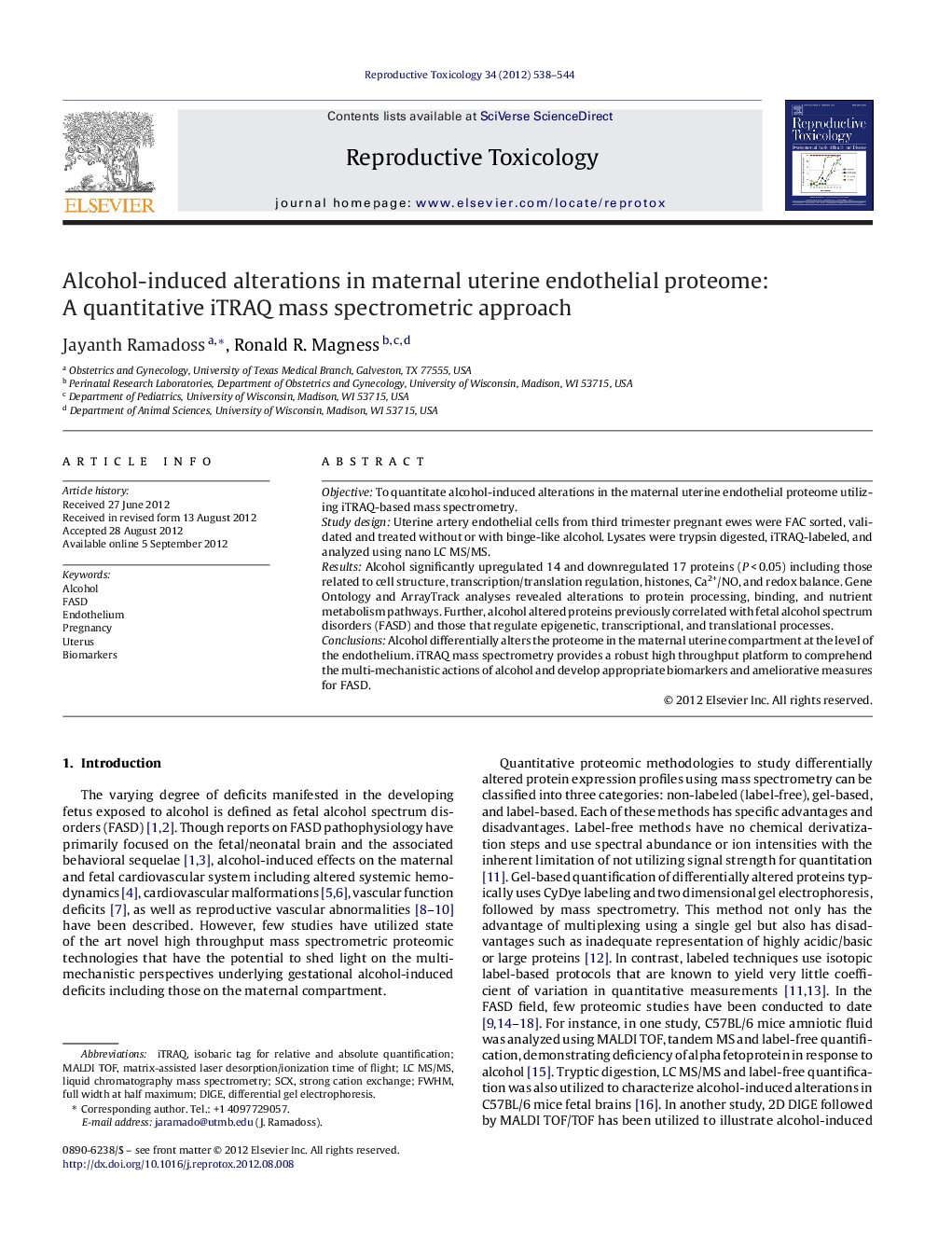| Article ID | Journal | Published Year | Pages | File Type |
|---|---|---|---|---|
| 2593868 | Reproductive Toxicology | 2012 | 7 Pages |
ObjectiveTo quantitate alcohol-induced alterations in the maternal uterine endothelial proteome utilizing iTRAQ-based mass spectrometry.Study designUterine artery endothelial cells from third trimester pregnant ewes were FAC sorted, validated and treated without or with binge-like alcohol. Lysates were trypsin digested, iTRAQ-labeled, and analyzed using nano LC MS/MS.ResultsAlcohol significantly upregulated 14 and downregulated 17 proteins (P < 0.05) including those related to cell structure, transcription/translation regulation, histones, Ca2+/NO, and redox balance. Gene Ontology and ArrayTrack analyses revealed alterations to protein processing, binding, and nutrient metabolism pathways. Further, alcohol altered proteins previously correlated with fetal alcohol spectrum disorders (FASD) and those that regulate epigenetic, transcriptional, and translational processes.ConclusionsAlcohol differentially alters the proteome in the maternal uterine compartment at the level of the endothelium. iTRAQ mass spectrometry provides a robust high throughput platform to comprehend the multi-mechanistic actions of alcohol and develop appropriate biomarkers and ameliorative measures for FASD.
Graphical abstractFigure optionsDownload full-size imageDownload as PowerPoint slideHighlights► First study to utilize quantitative iTRAQ nano LC MS/MS analyses for maternal binge alcohol exposure. ► Specific effects on the maternal uterus at the level of the endothelium. ► Direct effects on transcriptional, translational and epigenetic protein machinery. ► Perturbation in NO/redox balance, protein binding and nutrient homeostasis. ► Major role for the maternal–fetal interface in fetal alcohol spectrum disorders.
